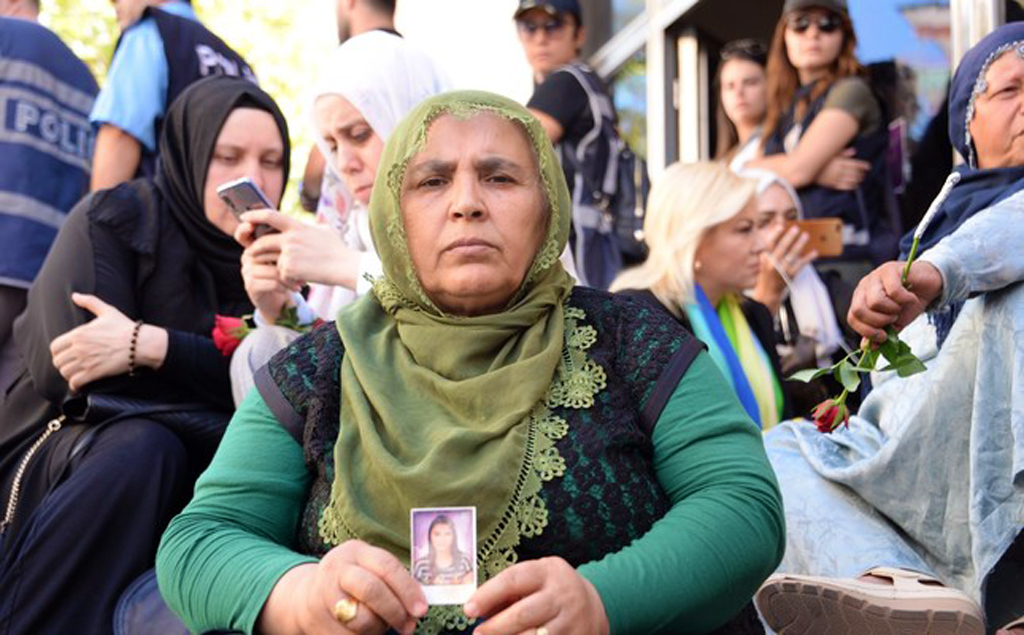Struggle of grieving Kurdish families who lost sons to PKK above all political concerns
Kurdish mothers, who have been staging a sit-in protest that is above all political ideologies and stances, demand their sons back from the PKK no matter what
More


Will Turkey pursue nuclear weapons?
In recent days, Turkish President Recep Tayyip Erdoğan's remarks added a new twist to this mix. On the one hand, he is laying the groundwork for his upcoming address to the United Nations General Assembly, conveying messages to relevant world leaders. At the same time, Erdoğan is unveiling his new road map for party politics. Two topics, i.e. emerging political movements and the safe zone/refugee debate, have been around for some time. The third issue, Turkey's intention to obtain nuclear warheads, is new.
More
The second half of September will be a busy season. Turkey, Russia, and Iran will hold a trilateral summit on Sep. 16. Five days later, Turkish President Recep Tayyip Erdoğan will fly to New York for the U.N. General Assembly's opening session.
The U.S. and European actors' indifference in Syria and pressure on Turkey weakens Ankara's position vis-a-vis Moscow in the political deal for Syria
A new conversation with strategic perspective, realistic goals and achievable outcomes needs to be restarted between Turkey and the U.S.
Turkey's opposition parties see the replacement of three elected mayors with independent trustees as "part of the government's political game." They claim that this measure was intended to "drive a wedge between the Nation Alliance's components." In other words, the opposition says that the Turkish government sought to plant seeds of discord between the Republican People's Party (CHP), the Good Party (İP), and the Peoples' Democratic Party (HDP).
The brutality of the Assad regime remains unchanged
Six years ago this week the Bashar Assad regime used chemical weapons against civilians in Ghouta. More than 1,400 people lost their lives and thousands were injured by the most well documented chemical weapons attack in human history..
More


Turkey-US deal doesn't legitimize the YPG
Turkey and the United States are setting up a joint operations center at Şanlıurfa in Turkey under a recent agreement. That U.S. European Command (EUCOM), as opposed to U.S. Central Command (CENTCOM), commanders are involved in negotiations reflects both sides' commitment to the deal.
More
Turkey's Justice and Development Party (AK Party) turned 18 earlier this week. In power for 17 consecutive years under President Recep Tayyip Erdoğan's leadership, it has arguably outperformed all other movements in the multiparty era.
Tensions between Turkey and the United States de-escalated thanks to a recent agreement on the proposed safe zone in Syria. If Washington sticks to the deal, joint steps could follow in Syria and Iraq.
After three days of intense negotiations, Turkey and the U.S. reached an agreement on the proposed safe zone in Syria. Both sides issued written statements to announce the establishment of a joint operations center and reaffirm their commitment to addressing Turkey's security concerns.
Turkey is hell-bent on neutralizing the terrorist threat next door. Neither the threat of sanctions nor the endlessly reheated Daesh story will convince the Turks to abort this mission
As expected, the National Security Council's most recent statement reiterated Turkey's commitment to combating terrorism. The communiqué made references to Turkish military operations in northern Iraq and the assassination of a Turkish diplomat in Erbil, criticized Interpol over the cancellation of arrest warrants for PKK leaders, urged NATO to act in line with the spirit of alliance and stressed Turkey's commitment to protecting its interests in the Eastern Mediterranean.
The status of more than 3.6 million temporary Syrian asylum seekers across Turkey has been one of the most controversial political issues being discussed by the Turkish people and politicians in the last few weeks..
There is an ongoing debate on Syrian refugees in Istanbul, who are being asked to return to the provinces where they were registered. The media extensively covered complaints by Syrians about the 30-day grace period.
There is a growing tendency among Western media outlets; they seek to answer what the West must do, given President Recep Tayyip Erdoğan will remain in power for another four years. Believing that the risk of "losing Turkey" is higher than before, they advocate the "carrot and stick" approach. Let me say at the outset that this is a fruitless endeavor.
Turkey's foreign policy at the moment is full of hot topics, including the S-400 air defense system agreement, the country's removal from the F-35 fighter jet program, potential U.S. sanctions, the Eastern Mediterranean and northern Syria. How those issues are resolved could determine the next four years of Turkish policy.
The S-400 air defense system's delivery to Turkey has sparked debate among Western governments on Ankara's future treatment. The question at hand goes beyond concerns about the fate of Turkey-U.S. relations. This is much bigger than one key NATO ally removing another key ally from the joint F-35 fighter jet program.
The Pentagon removed Turkey from the F-35 fighter jet program, despite U.S. President Donald Trump's earlier comments about Ankara being treated unfairly over its move to purchase the S-400 missile defense system from Russia. That Congress favored Turkey's removal was no secret either. It remains to be seen whether the United States will levy sanctions on Turkey under the Countering America's Adversaries Through Sanctions Act (CAATSA).
Three years have passed since that inauspicious coup plot. However, as much time elapses, the memory of our nation's children getting in the way of the traitors and making history will never fade.
On July 15, Turkey commemorated the third anniversary of the heinous coup attempt by members of the Gülenist Terror Group (FETÖ) and their affiliates who were nested within the Turkish state apparatus.

















